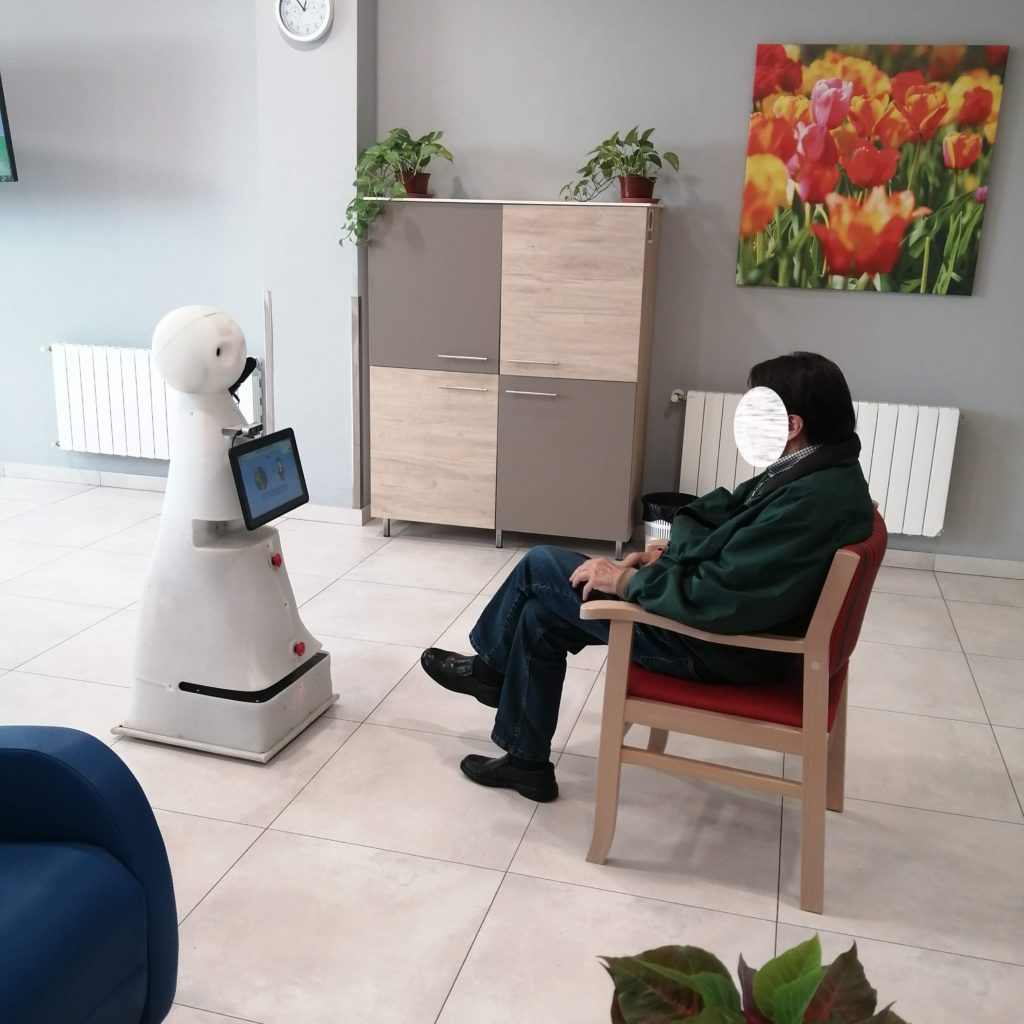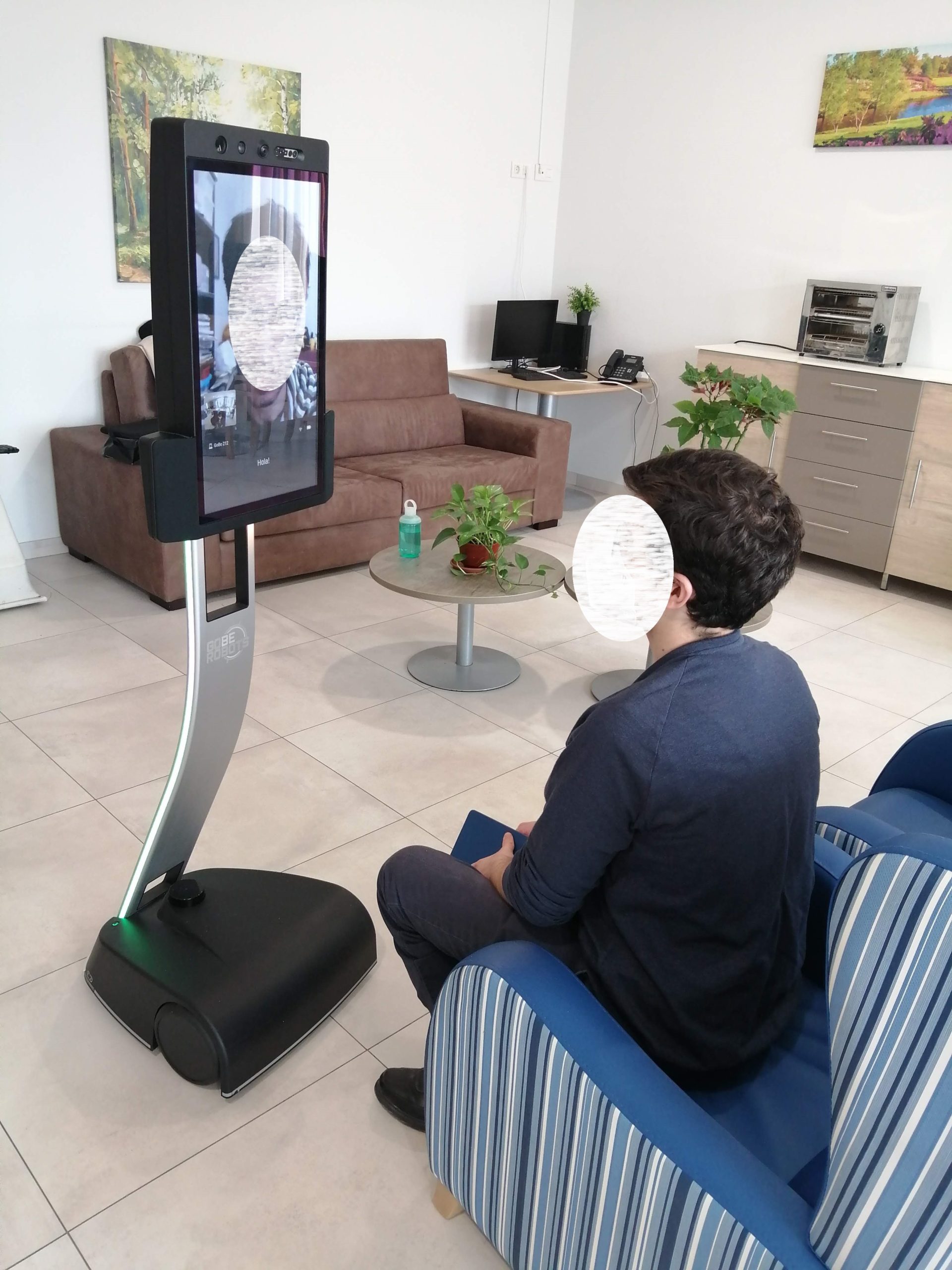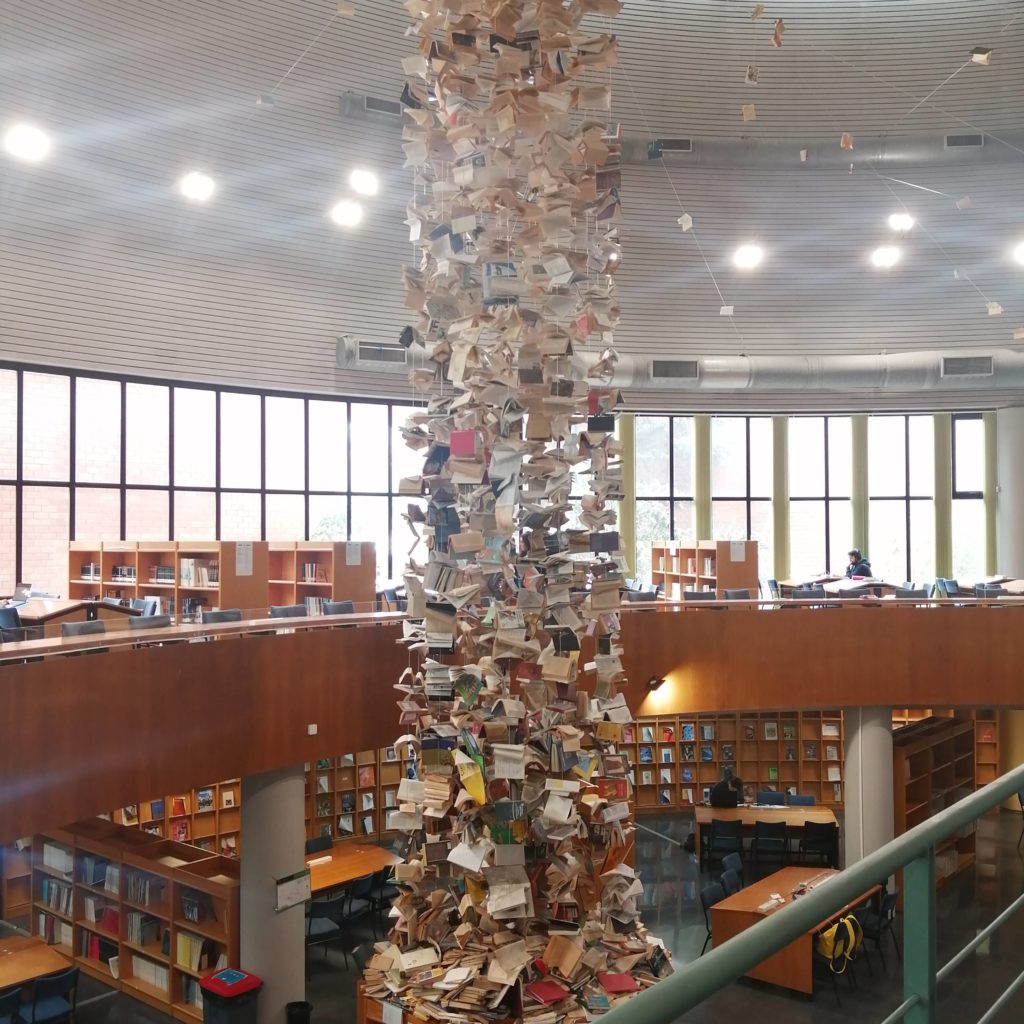Collecting data in Málaga: Testing mobile telepresence robots in a nursing home
For the past month and a half, I have been collecting data for my first research project about robotics and meaningful work. Collecting data means gathering information, in my case, by conducting interviews, observing in a real setting, and reading internal communication files. I really like the experience because it is a process of constant learning, where I get to interact with people and obtain new insights that take me to new concepts and understandings.
The data collection took place at a nursing home in Málaga, Spain. It was very interesting to interview the staff and observe the dynamics of the nursing home called Vitalia Teatinos, where there are a couple of mobile telepresence robots being tested (GoBe and CLARC, I will tell you more about them). Vitalia Teatinos is a nursing home that centers its attention on the residents’ personal needs and quality of life. That is why they are looking into novel technologies that allow them to improve residents’ well-being and connect them to their loved ones in new and effective ways.
I was able to collect data there thanks to Blue Ocean Robotics, EINST4INE’s industry partner, and thanks to the University of Málaga and the Andalusian Health Service, who are working together on a project called SUSTAIN. In the past, the University of Málaga has been testing CLARC, a robot with a humanoid form that has a touch screen at the torso, a shotgun microphone, speakers, and a webcam that is able to perform autonomously routinely geriatric tests and thus leaving clinicians with more time for doing other tasks that seem more meaningful for their work purpose. Nowadays, CLARC is being tested to help residents video call their family members, which is a need that intensified during the COVID-19 lockdown, where the staff had to organize video calls for around 100 residents and their families. This situation was a turning point to finding technology that helps to overcome loneliness in isolation times.

Resident video calling with CLARC. Picture taken by the author.
The other robot, GoBe, is a technology developed by Blue Ocean Robotics that has proven to be effective in facilitating telepresence. Its video calling features to facilitate doctor-patient and patient-family interaction is a breakthrough innovation that needs to be tested in healthcare settings to understand how safe and effective it can be. That is the main objective of SUSTAIN project: to evaluate the effectiveness of this technology to make video calls safely and also evaluate the medical, patient, resident, and family satisfaction of such interactions. Mobile telepresence robots are not new on the market, but they have not been tested in the healthcare sector with an emphasis on the potential to assist in crises such as the COVID-19 pandemic.

Videocall test with GoBe. Picture taken by the author.
It has been a great experience for the academic research opportunities and, of course, for the place and the people. Málaga is a very vibrant city with amazing food and friendly people. The Málagueños are very welcoming and will try to do anything so that you feel comfortable. It is also a student city with multiple faculties and a General Library, where I go to transcribe and code the interviews.

General Library from de University of Málaga. Picture taken by the author.
I am looking forward to continuing writing for this project. Having empirical studies in real settings is a great opportunity, and even more relevant in the field of robotics, where the majority of studies are in labs. It is true that there is a need to focus more on the effect of implementing robots in organizations from an employee perspective. It was an opportunity that I am very grateful for!


Add a Comment